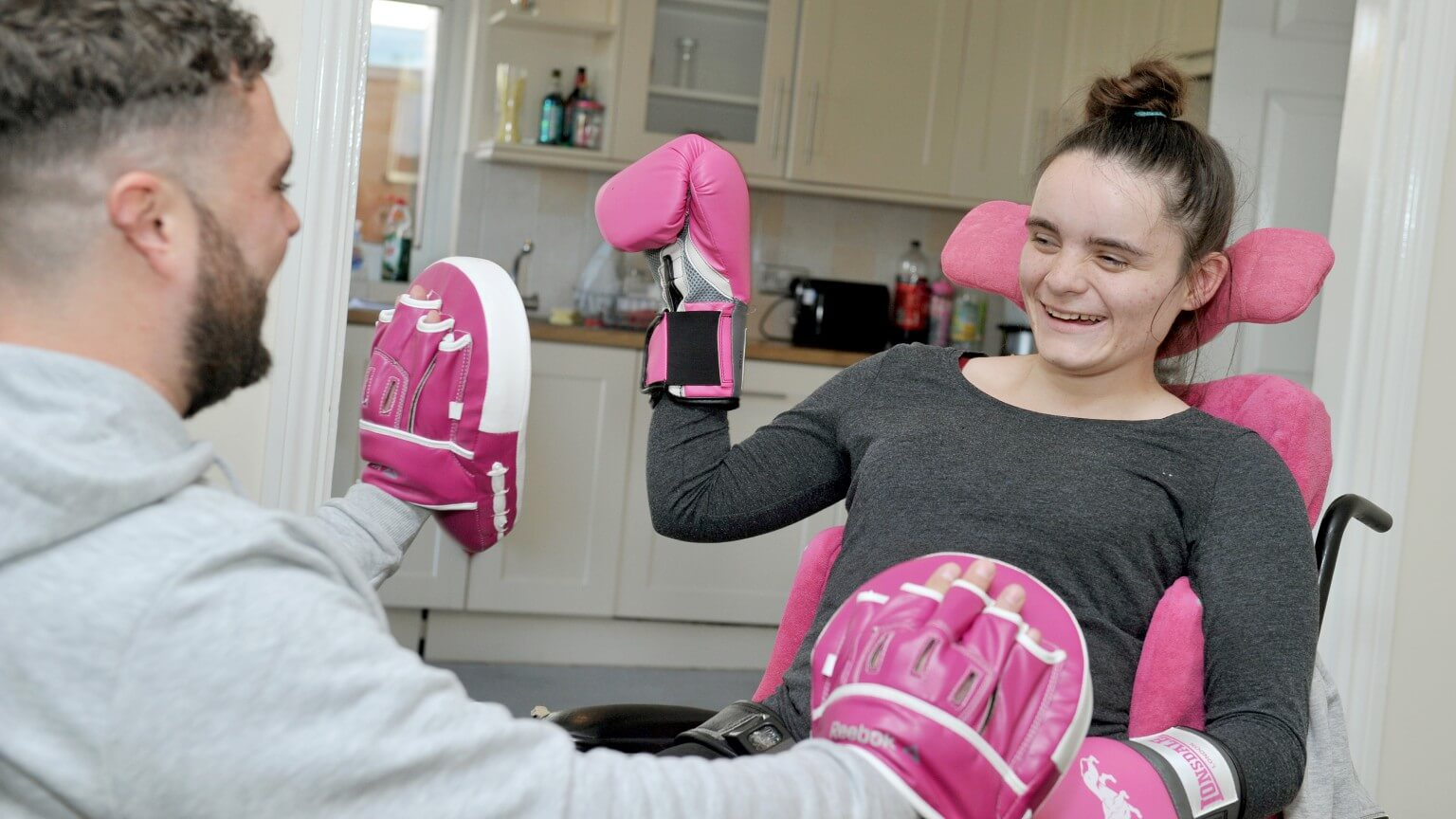The Role of Operational Leadership and Quality
by Cherianne Howe, Head of Regulation and Governance
What does the Quality Team do?
The Quality Team at Lifeways plays a crucial support role for operational colleagues. We’re here to help deliver high-quality care and support while ensuring services meet both organisational and regulatory standards, and promote best practice. Nearly all of the team members in the Quality Team have extensive operational experience, so we genuinely understand the pressures faced on the ground.
A good way to describe us is as a "critical friend", we genuinely have the best interests of the people we support and our operational colleagues at the centre of what we do. We offer an objective perspective, helping services maintain and improve the quality of care. We celebrate excellent practice by sharing it across the organisation and, where needed, support teams to strengthen and enhance areas that require improvement.
Ultimately, our role is to make sure people receive safe, meaningful, and person-centred support. We help teams succeed by offering insight, guidance, and encouragement - not just oversight.
How does the Quality Team contribute to improving lives at Lifeways?
Every role within Lifeways contributes to improving lives, and the Quality Team plays its part by ensuring that what we do is effective, consistent, and focused on the people we support.
Our work underpins the delivery of high-quality, person-centred care. We’re not there to judge, we’re there to guide and enable. When services meet or exceed expectations, we help shine a light on those successes so others can learn from them. When challenges arise, we help services understand what’s not working and how to fix it.
Everything we do centres on supporting people to lead meaningful and fulfilling lives. First and foremost, that means making sure homes and services are safe, that support plans are person-centred, and that we always listen to and act on the voices of the people we support. We help ensure services don’t just meet standards, they exceed them, with people truly at the heart of everything.
Can you tell us about your career journey into quality?
I began as a sessional support worker while continuing my educational studies, which gave me a real grounding in what Lifeways is all about - supporting people to live exceptional lives. From there, I progressed through the operational ranks as a Team Leader and Service Manager. That foundation helped me understand every aspect of what it takes to deliver a great service.
After about eight years as a Service Manager, I considered moving into an Area Manager role but when the role of Quality Auditor was introduced, it felt like the perfect opportunity. I could return to services, not as a direct Support Worker, but by helping ensure standards were met and people were safe. I felt this could help me positively influence many more lives.
I’ve since moved into more strategic roles: Quality Audit Manager, then Regulation and Quality Manager, and now Head of Regulation and Governance. Each step has kept me close to the people we support while giving me a bigger-picture view of how we deliver quality across the organisation and across 3 regulators (England, Scotland and Wales).
What’s the role of a Regional Quality Manager?
Regional Quality Managers work closely with Quality Compliance Officers but take on a more strategic and guidance-based role. While Compliance Officers carry out audits, like checking systems, reviewing documentation, validating that plans are in place; offering support and guidance, Regional Quality Managers help services respond to what internal and external audits find. They work with Registered Managers to create action plans, meet deadlines, and ensure standards are consistently met.
Because we’ve all worked operationally, we understand the demands of care and can offer practical advice. We also provide support with complex issues like safeguarding, and we’re often on hand during inspections to help services feel confident and prepared. Essentially, we bridge the gap between compliance and operational delivery, helping teams embed good practice and tackle challenges effectively. We’re there to support, not criticise and always with the aim of achieving the best outcomes for the people we support.
What’s the role of a Quality Compliance Officer?
Quality Compliance Officers work alongside Regional Quality Managers to embed quality and compliance across services. They conduct audits, review systems and documentation, validate action plans, and gather feedback from people we support during home visits. By analysing data, they identify where support is needed and ensure improvement plans are effective and sustained.
They provide impartial oversight to Service and Registered Managers, offering practical support and guidance. With operational experience, they understand the realities of care and help teams meet standards, embed good practice, and overcome challenges.
Their role is supportive, not critical, always focused on delivering the best outcomes for the people we support.
How do Quality work with services day-to-day?
Our relationship with services is built on collaboration and trust. We regularly visit services, offering support, guidance, and feedback.
Audits are just one part, we also help services co-produce improvements with the people we support, making sure any change is person-centred and meaningful. For example, we support things like inclusive recruitment, "Our Voice" initiatives, and other involvement-based activities. Everything is done with people at the centre. We make sure services reflect what the people we support want and need.
We also provide guidance when challenges arise, offering mentoring and practical advice so registered managers and teams feel confident in what they do. Our aim is to empower services, not burden them. By building strong, open relationships, we help services continually improve and stay focused on delivering outstanding care.

What skills do you need to work in the Quality Team?
You need a solid operational background to really understand how services work. Strong written skills are essential as report writing is a key part of the job. Analytical ability is also important; we review a lot of data and need to spot patterns and risks early.
Communication is another core skill, knowing how to raise concerns constructively, guide others, and deliver sensitive messages in a supportive way. Conflict management and interpersonal skills can be vital, especially when difficult conversations are needed. You also need to understand legislative and regulatory requirements so you can offer accurate guidance.
While some of this knowledge can be built on the job, a strong base understanding is expected. We also offer ongoing learning and development, including access to training like the Registered Managers Network, which helps keep everyone up to date with best practice and changes in the sector.
How do you ensure consistency and quality across all Lifeways services?
It’s a challenge because every service is unique, but we have systems in place to maintain consistency. Our shift to electronic data has massively improved our oversight - we can spot risks earlier and offer support before things become serious. We use various data sets and a risk matrix to identify services that may need extra help. Then we target audits and support accordingly. We ensure all services have access to the tools they need such as guidance documents, audit templates, and more. When we carry out audits, we provide actionable feedback and follow up to ensure improvements are made.
A big part of maintaining quality is building honest, open relationships so if something’s going wrong, managers feel safe telling us, and we can help before it escalates. At the end of the day, quality is a shared responsibility, we are all one team with the same common goal – to ensure people live their best life. With the right tools, open communication, and organisational oversight, we support services to stay compliant and continuously improve.
What’s the most rewarding part of working in the Quality Team?
The most rewarding part is seeing the real difference we all make in people’s lives. It’s amazing to visit someone in a service, hear what they need or want and then come back later and see that change has happened because of something we supported or suggested.
One example was a person who hadn’t been horse riding in months. We raised it with the team and helped them find a solution. When we returned, that person was riding again and they were beaming. That’s what it’s all about. We don’t deliver support directly anymore, but we make sure the conditions are there for outstanding support to happen and for people to thrive.
None of this would be possible without the brilliant people in services delivering the day-to-day care and support. We’re just one part of the puzzle, but when it all comes together, and someone’s life is genuinely better as a result that’s incredibly fulfilling. I am incredibly proud to work for Lifeways.
How to become an Operational Leadership and Quality team member
If you’re looking for an operational leadership and quality role, please take a look at our available roles. We have exciting opportunities across the country, many of which are remote based.
If you have any questions about becoming an operational leadership and quality team member at Lifeways, please feel free to get in touch.

